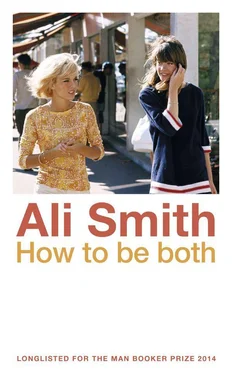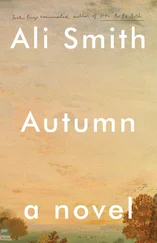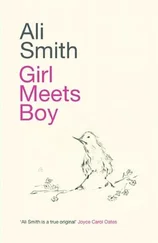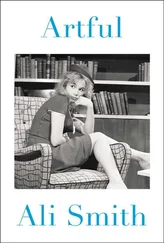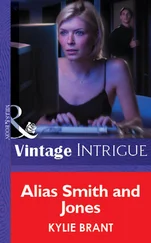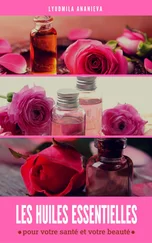Do things just go away? her mother says. Do things that happened not exist, or stop existing, just because we can’t see them happening in front of us?
They do when they’re over, George says.
And what about the things we watch happening right in front of us and still can’t really see? her mother says.
George rolls her eyes.
Totally pointless discussion, she says.
Why? her mother says.
Okay. That castle, George says. It’s right in front of us, yes?
So I see, her mother says.
I mean, you can’t not , George says. Unless your eyes don’t work. And even if your eyes didn’t work, you’d still be able to go up to it and touch it, you’d be able to register it being there one way or another.
Absolutely, her mother says.
But though it’s the same castle as it was when it was built way back when, and it has its history, George says, and all the things have happened to it and in it and round it and so on ad infinitum, that’s nothing to do with us sitting here looking at it right now. Apart from it being scenery because we’re tourists.
Do tourists see differently from other people? her mother says. And how can you have grown up in the town you’ve grown up in and not consider what the presence of the past might mean?
George yawns ostentatiously.
Best place in the world to learn how to ignore it, she says. Taught me everything I’ll ever need to know. Especially about tourism. And growing up around historic buildings. I mean. They’re just buildings. You’re always talking such crap about things meaning more than they actually mean. It’s like some drippy hippy hangover, like you were inoculated with hippiness when you were little and now you can’t help but treat everything as if it’s symbolic.
That castle, her mother says, was built by order of the Estense court, the d’Estes being the family who ruled this province for hundreds of years and the people responsible for so much of the art and poetry and music. And therefore for the art and writing and music that followed it, which you and I take for granted. If it wasn’t for Ariosto, who flourished because of this court, there’d be a very different Shakespeare. If there’d even be a Shakespeare at all.
Yeah, maybe, but it’s hardly relevant now , George says.
You know, Georgie, nothing’s not connected, her mother says.
You always call me Georgie when you want to patronize me, George says.
And we don’t live on a flat surface, her mother says. That castle, this city, were built all those irrelevant centuries ago by a family whose titles and hereditaries come down in more or less a direct connection to Franz Ferdinand.
The band? George says.
Yes, her mother says. The pop band whose assassination in Sarajevo in 1914 brought about World War One.
World War One is like a whole hundred years ago next year, George says. You can hardly call it relevant to us any more.
What, the Great War? in which your great-grandfather, who happened to be my grandfather, was gassed in the trenches not once, but twice? Which meant he and your great-grandmother were very poor, because he was too ill to work and died young? And meant I inherited his weak lungs? Not relevant to us? her mother says. And then the break-up of the Balkans, and the start of the territorial trouble in the Middle East between the Israelis and the Palestinians, and the civil unrest in Ireland, and the shifts of power in Russia, and the power shifts in the Ottoman empire, and the bankruptcy, economic catastrophe and social unrest in Germany, all of which played a huge part in the rise of Fascism and in the bringing about of another war in which, as it happens, your own grandmother and grandfather — who happened to be my mother and father — both fought when they were just two or three years older than you? Not relevant? To us?
Her mother shakes her head.
What? George says. What?
A well-heeled Cambridge childhood, her mother says.
She laughs a laugh to herself. The laugh infuriates George.
Why did you and dad choose to live there, then, if you didn’t want us to grow up there? she says.
Oh, you know, her mother says. Good schools. Proximity to London. Buoyant housing market that’d always hold its own in recession. All the things that really matter in life.
Is her mother being ironic? It’s hard to tell.
Very good food-bank system for when you leave school and your father and I can’t afford to send you to university and eat, and for later too for you when you come out of university, her mother says.
That’s such an irresponsible thing to say, George says.
Well but at least it’s new and contemporary, my irresponsibility, her mother says.
The tables round them are emptying. It’s late and quite a bit cooler. There’s been rain beyond the arches while they’ve sat here eating and arguing. Her mother puts a hand into her handbag and pulls out a jumper. She gives it to George to put round Henry’s shoulders. Then she gets her phone out of her bag. She switches it on. Guilt and fury . After a moment, she switches it off. George feels so guilty she is nearly sick with guilt. She formulates, quick, the kind of question she knows her mother likes to answer.
You know that place we went to earlier today? George says.
Uh huh, her mother says.
Do you think any women artists did any of it? George says.
Her mother forgets the phone in her hand and immediately holds forth (just as George knew she would).
She tells George how there are a few renaissance painters they know about who happen to have been women, but not very many, a negligible percentage. She tells her about one called Catherine who was brought up by the court here, in that castle right there, because she was the daughter of a nobleman and one of the women of the Estense court took her under her wing and made sure she had a superb education. Then Catherine had gone into a nunnery, which was a good place to go if you were a woman and wanted to paint, and while she was there she became a celebrated nun and she wrote books and painted pictures on the side, about which nobody really found out until after she died.
Her paintings are quite lovely, her mother says. And you can actually still see Catherine today.
You mean through sensing her personality by looking at the paintings etc, George says.
No, I mean quite literally, her mother says. In the flesh.
How? George says.
In a church in Bologna, her mother says. When they made her a saint they dug her up — there’s all sorts of testimonials about how sweet the smell was when they dug her up –
Mum , George says.
— and they put her in a box in a church dedicated to her, and if you go there you can still see her, she’s gone black with age and she’s sitting in the box and holding a book and some kind of holy monstrance.
That’s insane, George says.
But other than something like that happening? her mother says. No. It’s pretty unlikely that women worked on much that’s extant, certainly on anything we saw today. Though if I had to, I don’t know, write a paper about it or try to make a thesis about it, I could make a pretty good one about the vaginal shape here –
Mum , George says.
— we’re in Italy, George, it’s all right, no one knows what I’m saying, her mother says drawing a diamond shape at her own breastbone, the vaginal shape here on that beautiful worker in the rags in the blue section, the most virile and powerful figure in the whole room, much more so than the Duke, who’s supposed to be the subject and the hero of that room, and which must surely have caused a bit of trouble for the artist, especially since that figure’s a worker or a slave and also clearly black or Semitic. And how the open shape at his chest complements the way the painter makes the rope round his waist a piece of simultaneously dangling and erect phallic symbolism –
Читать дальше
